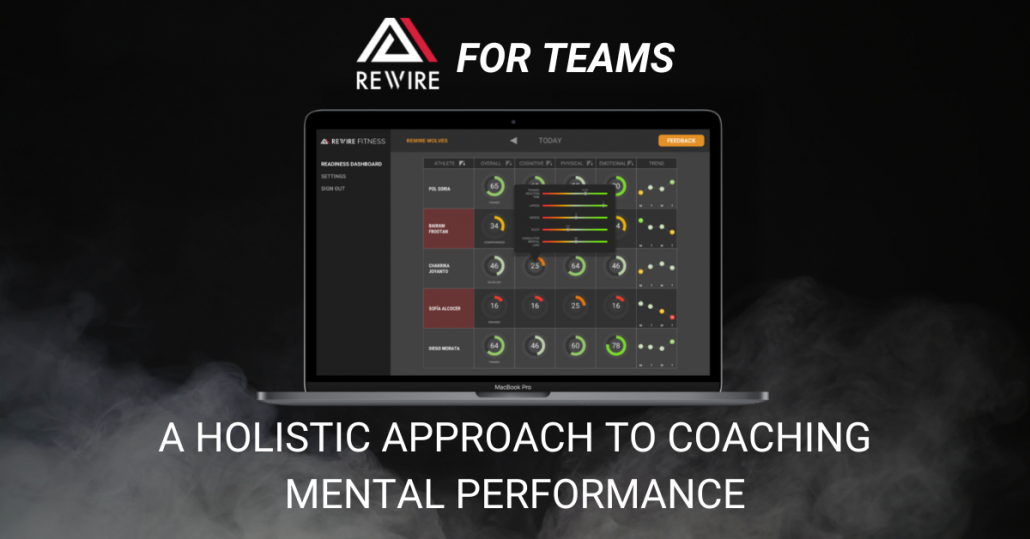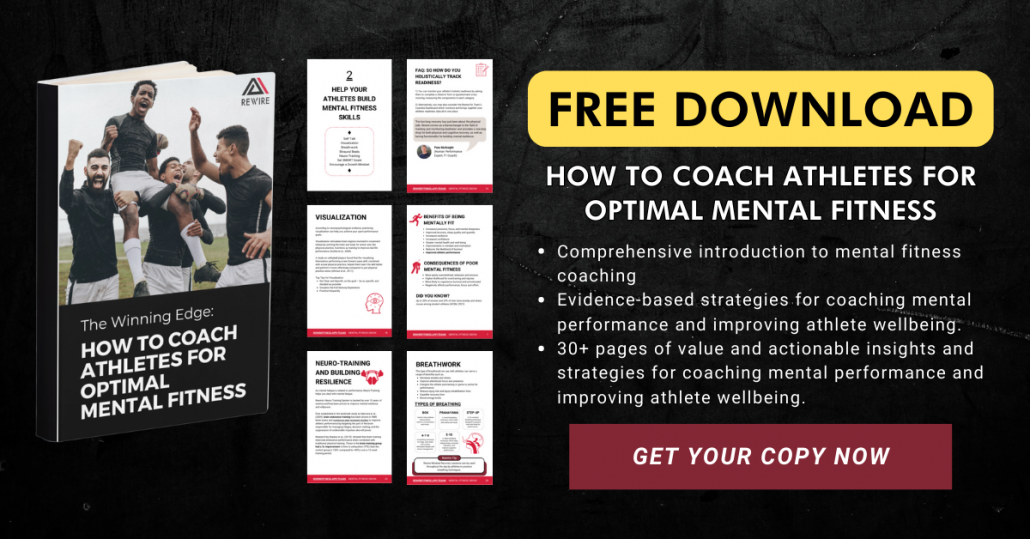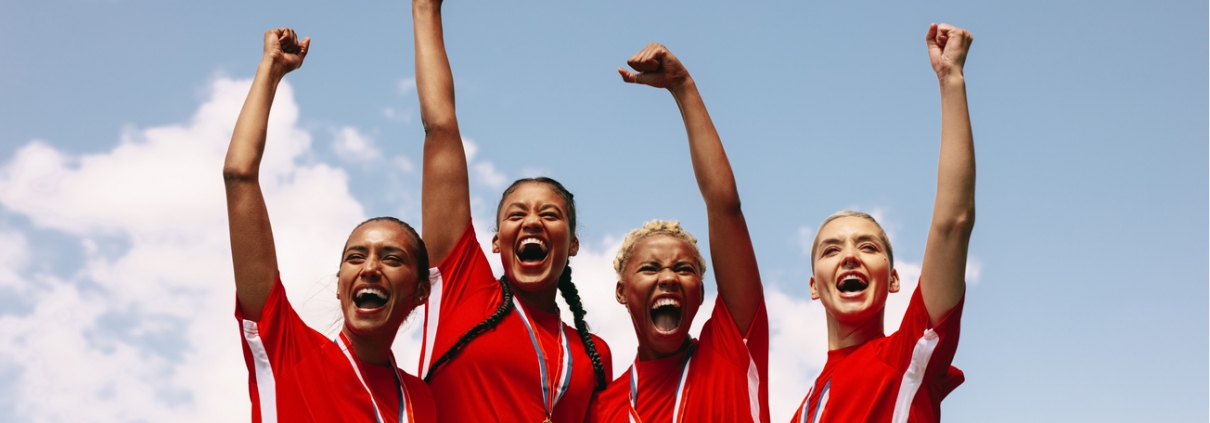How Can Coaches Improve Team Performance? 8 Tips
Michael Jordan once said, “talent wins games, but teamwork and intelligence win championships.”
As a coach, improving team performance is no doubt one of your main goals. The better your team, the more likely you are to win.
But many coaches often forget that a team consists of multiple players. It sounds so basic. However, all the moving pieces (the players) need to work together for the team to perform at its best.
And while everybody wants to win, it’s talent and team development that is often the most rewarding and realistic to achieve. Everybody wants to improve, right?
This blog will highlight how coaches can improve team performance.
Key takeaways:
- Coaches should better understand team dynamics to improve performance
- Celebrate small wins & reflect on losses candidly
- Use Rewire to help athletes achieve peak performance
How can a coach help a team?
Without a coach, you can still have a team.
But with a coach, the team is more likely to be better aligned towards the same objective, i.e., everyone has the same goal.
For instance, while a team wants to win (big goal), smaller actions such as athlete feedback and team dynamics are necessary to achieve the bigger goal.
A coach can help athletes get on the same train that leads to the final destination (big goal). While previously, they might have taken different routes to get there. This alignment is what makes a successful team.
So how can coaches improve team performance?
- Organize sports team bonding activities
- Celebrate small wins
- Reflect on losses through a candid lens
- Set SMART team goals
- Provide custom feedback to your athletes (based on their skill level)
- Listen to your athletes & support their individual development
- Better understand team dynamics
- Implement mental training with your athletes
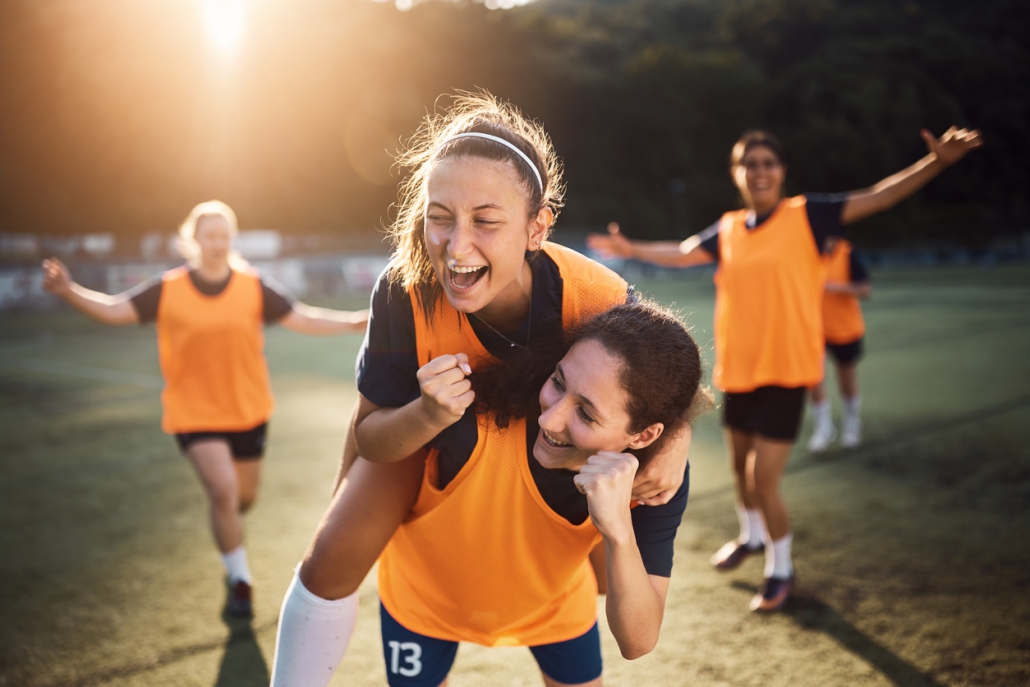
Organize sports team bonding activities
One of the best ways for coaches to improve team performance is by organizing team bonding activities. This is especially true if it’s a new team, such as a high school sports team or a collegiate soccer team.
Your choice of activities will depend on the age group of your athletes. For example, if you’re coaching a youth sports team, then games such as tug of war, stuck in the mud, and relay races are great starting points.
But there are surprisingly fewer team bonding activities for older teams and adults. But a few ideas include escape rooms, social events, team dinners, and other non-sport activities.
Let’s use the Top Gun movie example — they might be fighter pilots, but they play beach volleyball to bond and improve their teamwork. Get creative with it!
Celebrate small wins
Don’t just celebrate the big victories — celebrate the small wins along the way. Make sure to involve all team members when celebrating key milestones, shared goals, and other events.
Acknowledging and celebrating these small wins is a great way to increase team morale, spirit, and performance.
Reflect on losses through a candid lens
Every team experiences losses.
A good coach can reflect on team performance with an honest and candid viewpoint.
It’s important to assess what went well, but, more importantly, what could be improved. Be careful how you deliver feedback — more on this later in this post — but be brutally transparent as to why you either (a) won, or (b) lost.
Set SMART team goals
By now, you likely know what SMART goals are. If not, don’t stress:
- Specific: state exactly what you want to achieve or improve.
- Measurable: how can you accurately measure progress?
- Achievable: Is it possible? You need to be realistic.
- Realistic: your goals should be challenging, but not impossible.
- Time-bound: set a realistic timeframe to achieve your goals.
When setting goals as a coach, you should set these with your team. If the team is involved in the goal-setting process, they are more likely to commit to them.
As a coach, you may choose to discuss your goals with the team at the beginning of the season.
This is a great time to drive motivation and get everyone on the same page. It makes it that much easier to move the needle closer to your goals, whether that’s winning the league or avoiding relegation.
Make team goals a part of your pre-season preparation.
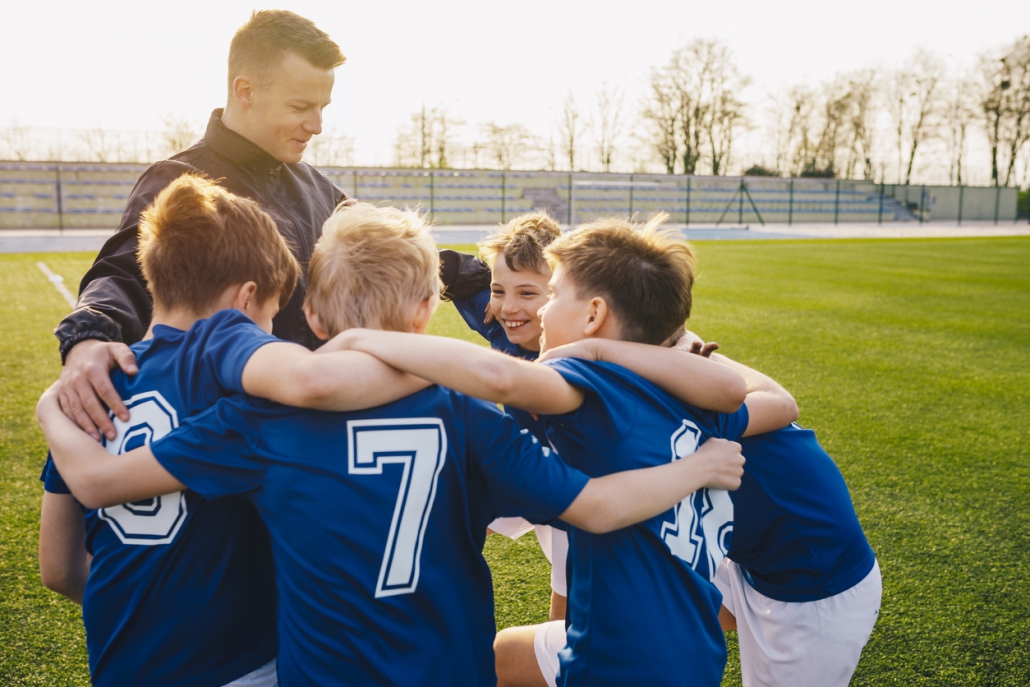
Provide custom feedback to your athletes (based on their current skill level)
Coaches can build on their team performance by improving how they provide feedback to their athletes.
For example, if you’re coaching multiple teams of different skill levels, you shouldn’t use the same feedback for both groups [1].
Instead, you want to tailor your coaching feedback to their individual skill level.
Let me provide you with a basic and easy-to-understand example. You have two groups:
- Beginner-to-novice athletes
- Elite athletes
Feedback for the beginner-to-novice athletes will look a little different — it’s likely to be more focused on basic skill learning, thus, less technical.
On the other hand, when providing feedback to elite athletes, you can be more direct and instructional — they know the basic skills, but they may need to apply them differently.
You can take a similar approach when providing feedback to your athletes. Provide custom feedback depending on where they are currently, not where you want them to be.
The better each athlete performs, typically, the better the team performs.
Related: What is the Most Effective Way to Provide Feedback to an Athlete?
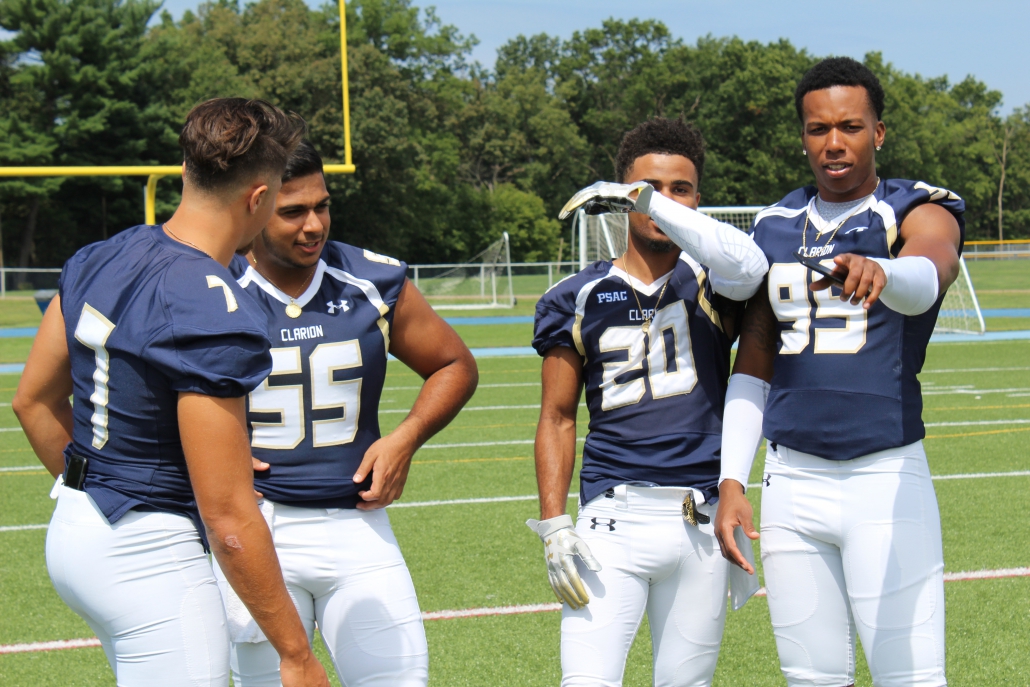
Listen to your athletes & support their individual development
It sounds so simple, but listening to your athletes can improve team performance in sports.
Naturally, some athletes will be better at some skills than others. Therefore, you want to find a way to complement each skill set for the best results.
Also, being there for your athletes, e.g., after training, can provide additional team bonding.
And if an athlete is struggling with their mental health or motivation for training, for example, then you can help them get access to the help they need.
Better understand team dynamics
If you can leverage and better understand team dynamics, you can improve team performance.
For example, in a team, all teammates have preferred communication styles.
As a coach, you must recognize these and pair accordingly. You might be able to address one player’s weaknesses while improving another’s strengths.
Get creative with it. But ultimately, the more your team works like a team, the better. It sounds simple — that’s because it is — but when done correctly, it’s incredibly powerful.
Implement mental training with your athletes
“Before every shot, I go to the movies.” – Jack Nicklaus
It’s no secret that the best athletes use mental training to improve their performance. For example, Elite Olympic swimmer Megan Jendrick, in preparation for the 2000 Sydney Olympics, stated: “I visualize my races every night before I go to bed. I visualize it with a stopwatch in my hand. Every night, my goal is to go 1:05:40, I just visualized it the other day, and on the stopwatch, my time was 1:05:47.” Jendrick went on to win gold that year.
The above is only one example of mental training, a technique known as visualization.
You can create a mental training program for your athletes to help improve their weaknesses and develop better skills and techniques.
No two mental training plans are the same. To get started, we suggest you read our blog post on how to create a mental training program for athletes.
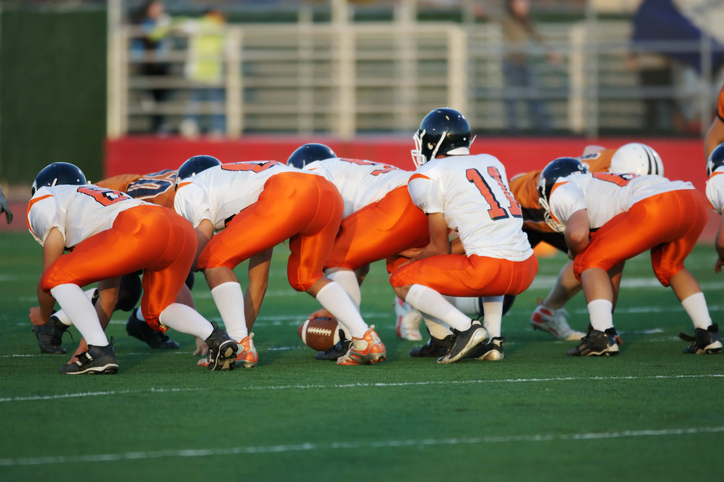
Coaches can use Rewire to improve team performance
Coaches can improve team performance by following the advice in this blog post.
You can also take it a step further. Athletes can use Rewire to improve mental resilience, focus, and to enhance competition mindset, prep, and team performance, whether in cycling, golf, basketball, or any sport.
Here’s what Cody Parrent, Senior Director of ESports operations at Indiana Pacers, said:
“Rewire has changed the way our players and staff train, measure performance, and manage cognitive fatigue on a daily basis. This new holistic approach to readiness and recovery has enabled our esports athletes to perform at their maximum level and reach peak performance.”
Find out how Rewire can improve team performance
References
- Otte, F.W., Davids, K., Millar, S.K. and Klatt, S., 2020. When and how to provide feedback and instructions to athletes?—How sport psychology and pedagogy insights can improve coaching interventions to enhance self-regulation in training. Frontiers in Psychology, 11, p.1444.
